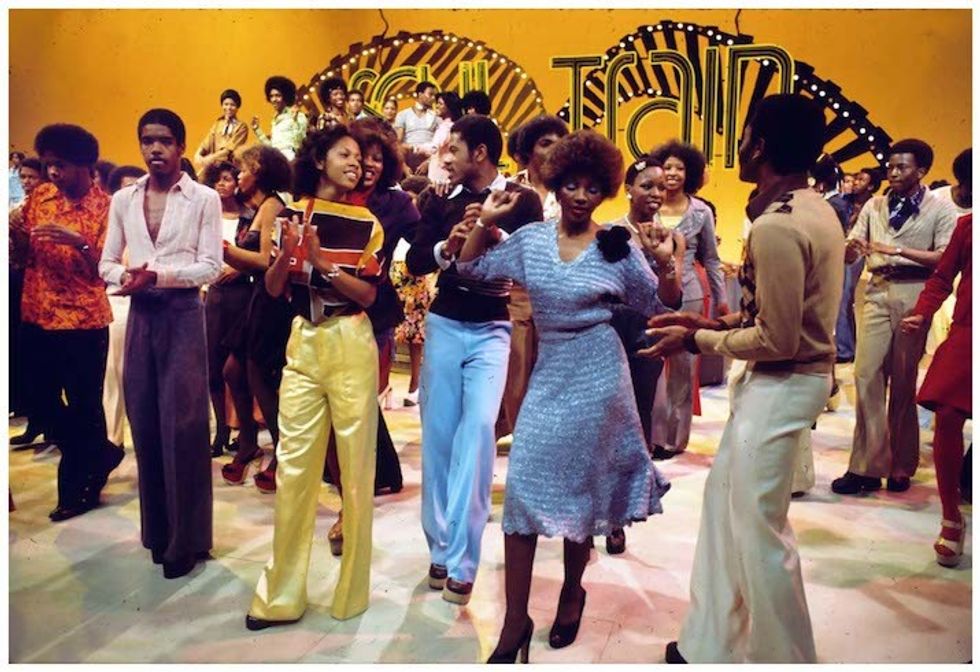As you were researching the book, what did you come across that surprised you? There was an era of Soul Train, roughly around 1982-1984, where Don was grappling with the impact of MTV, and he started having bands on the show that you would not have imagined would have appeared on Soul Train in a million years. I wasn't watching the show as much then, so a lot of the New Wave-y acts like Duran Duran that ended up playing the show…it was the first time I was seeing them. I'd dig into the archives and be like, "Wait, the Police were on Soul Train? Really? Oh yeah, there they are." [Laughs]
The other thing was that Soul Train was often referred to having a family atmosphere behind the scenes, and that Don was a very warm figure. What I ended up finding out, however, was that he was actually rather aloof. Very few of the dancers, even those who'd' been on the show for years, were close to him. Marco De Santiago, who was on the show from the late Seventies to the early Nineties, talked about having a very stand-offish relationship with him. He seemed to keep a sense of distance between himself and the people on the show, which felt a little shocking. He had a close circle of friends, just not a very wide circle of friends.
You can really sense this once Soul Train moves into the hip-hop era. The show supported hip-hop early on, bringing Kurtis Blow and the Sugarhill Gang on when rap was in its infancy, but….
Yeah, by the time we get to Snoop Dogg in the book, there's the sense that this is not his music. But look, people need to remember that Soul Train was really a daytime TV program. If you had N.W.A., Snoop and Tupac on his show, you're going to have nothing but a million bleeps.
But I think it was more that the stuff they were talking about in those songs, the sensibility that was being put forth…it just didn't jibe with Don. I really do think that there's a correlation between him stepping down from hosting the show and the rise of this new music. He still ran the show, but clearly the idea of hosting a show and having to interview gangsta rappers was somewhat distasteful to him.
By this point, hip-hop had it's own Soul Train on MTV, minus the dancing.
Yo! MTV Raps, right. Also, there was The Arsenio Hall Show; Hall's first TV appearance, by the way, was on Soul Train. The whole notion of being the host of Black Hollywood, which Don represented for a long time, was something Arsenio used right from the beginning. So you have MTV siphoning off the hip-hop audience and Arsenio as the embodiment of this younger, hipper black culture…it's a case of the pioneer being lapped by those who he inspired.
Would you say the same thing happened with hip-hop and dance?
The book talks about all these moves that became the foundation for breakdancing being worked out on Soul Train by various dancers in the Seventies.
There was a bit more give-and-take there. I think that hip-hop borrowed aspects of those dances the same way it borrowed other aspects of culture and made things it's own. I used to think hip-hop was a revolution; now I firmly believe it's an evolution. You can certainly see a lot of what would become the canon of hip-hop dance moves on those early- to mid-period episodes of Soul Train. But a lot of the moves specific to breakdancing, like headspinning…you don't really see kids doing that anymore. Moves like "the Robot" and moonwalking, they're still in circulation.



